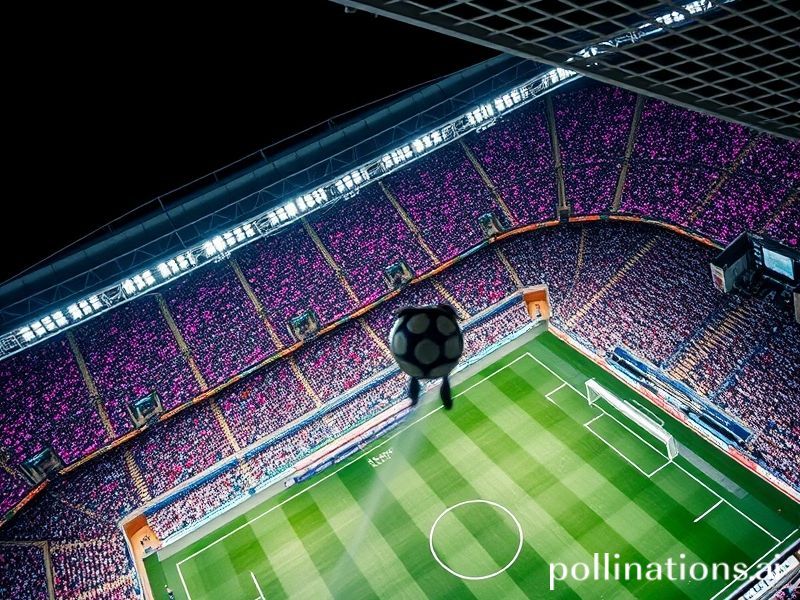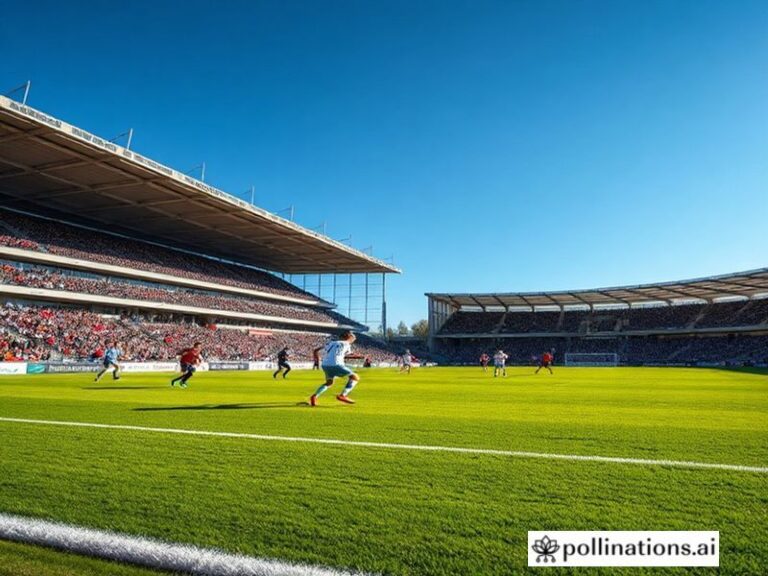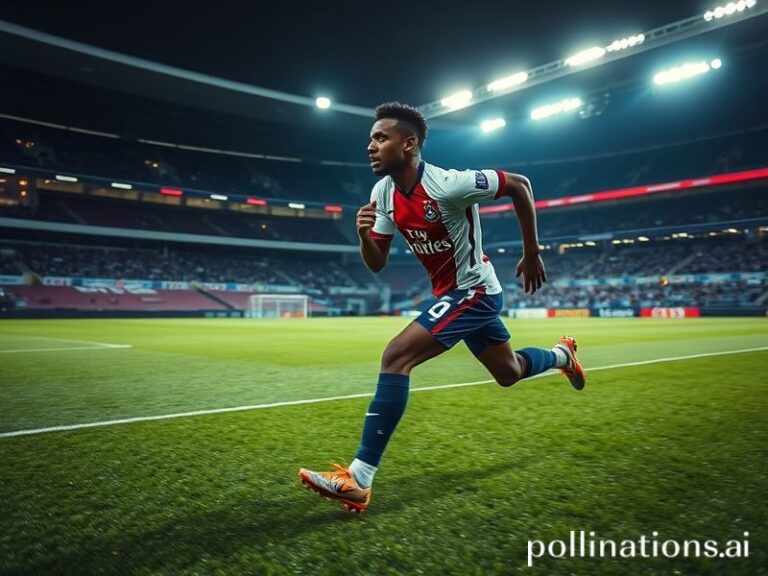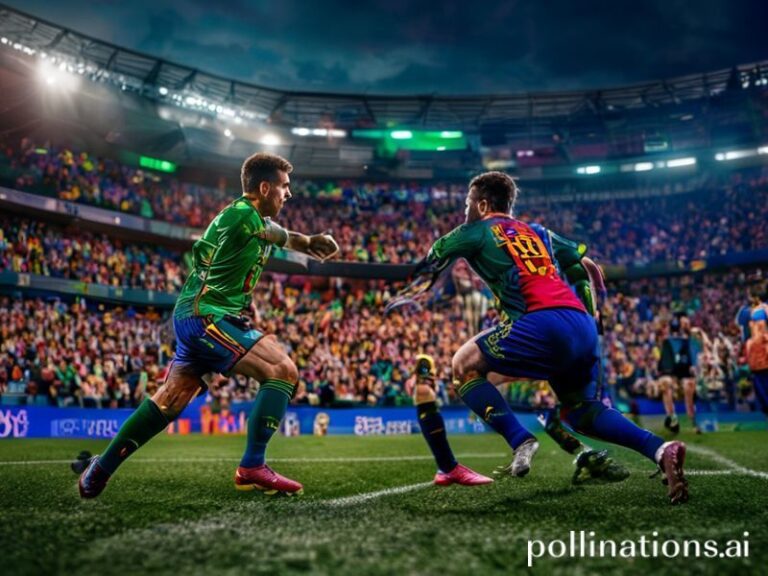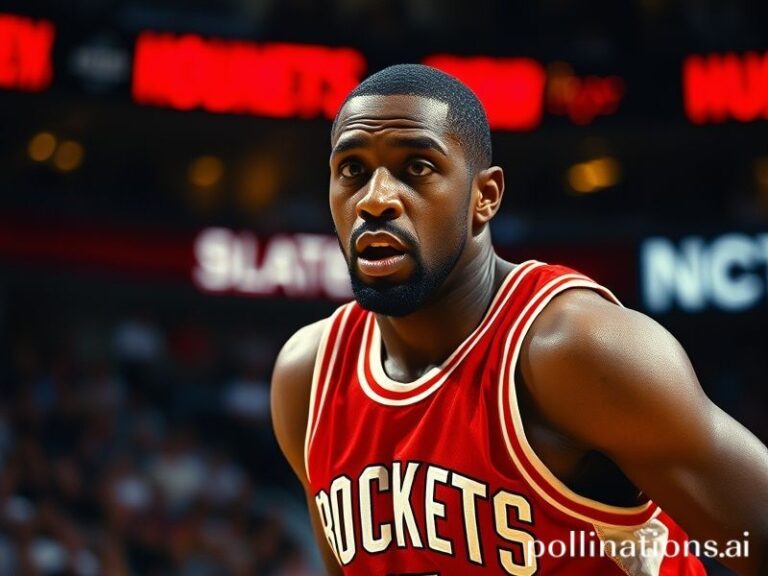Galácticos vs. Parakeets: Real Madrid-Espanyol as the World’s Favorite One-Sided Metaphor
**The Colonies Strike Back: When Real Madrid Meets Espanyol in a Tale of Two Cities**
Madrid—The Bernabéu rises like a concrete basilica on match night, floodlights carving halos through the smog while global television networks queue up their dramatic orchestral stings. Real Madrid versus RCD Espanyol is, on paper, the Spanish equivalent of a Bond villain versus the night janitor: one side armed with Galácticos, state-of-the-art sports science, and a budget larger than the GDP of several UN members; the other armed with… well, a sensible away kit and the faint hope that their loanee striker might rediscover the concept of coordination. Yet 75,000 spectators and an estimated 650 million living-room witnesses still tune in, proving that humanity will watch anything if you wrap it in a shiny logo and promise the possibility of schadenfreude.
From Lagos sports bars streaming on 4G connections that wheeze like asthmatic accordions, to Tokyo izakayas where patrons pretend to care about LaLiga because their Spanish textbook told them to, the fixture is sold as “heritage.” Heritage, in this context, means a 123-year-old Catalan club whose greatest historical achievement may be simply continuing to exist within Uber-Eats delivery range of the Camp Nou, versus a century-old continental empire whose trophy room has more silver than the Bolivian central bank. The global audience is assured this is a “classic,” the same way a drive-thru cheeseburger is marketed as “artisanal”: technically food, historically consistent, unlikely to poison you before dessert.
International broadcasters love the narrative because it writes itself. Channel executives in New York, Riyadh, and Sydney need only three words—”Spanish football giants”—to trigger Pavlovian engagement metrics. The fact that Espanyol have spent the better part of two decades yo-yoing between divisions is politely ignored, rather like a royal cousin caught selling counterfeit handbags. What matters is the iconography: white shirts versus blue, crown versus parakeet, capital versus province, empire versus colony. Strip away the HD slo-mos and tactical camera angles and you have the same plot Shakespeare recycled: the unavoidable looming of power over its restless periphery.
For geopolitical hobbyists, the match is a handy microcosm. Real Madrid’s soft-power reach—part Saudi tourism commercial, part EU cultural export—mirrors how modern influence works: build the brand, buy the stars, let the world do the rest. Espanyol, meanwhile, represent the plucky separatist province that refuses to fold, a footballing Puerto Rico with better seafood. Every blocked clearance is framed as resistance; every Madrid goal, inevitability. Viewers in countries whose borders were drawn by drunken European diplomats can relate: you cheer for the underdog because you know how the story usually ends—someone richer walks off with the treasure chest, and the commentators call it “destiny.”
Gamblers in Manila, micro-dosing adrenaline on their lunch breaks, study over/under markets with the solemnity of astrophysicists. Crypto-millionaires in Dubai hedge bets against their own boredom. Somewhere in a Helsinki basement, an AI model trained on ten seasons of xG data predicts a 3-0 Madrid win and immediately crashes when confronted by the concept of “Espanyolian grit,” a statistical anomaly roughly translated as “they parked the bus and the driver fell asleep.” The algorithm will be debugged by morning; human irrationality is harder to patch.
Back inside the stadium, VIP suites host ambassadors, telecom heirs, and that one Hollywood star who recently discovered “soccer” makes for excellent Instagram content. They clap on cue when Benzema pirouettes, sip Rioja priced like a black-market kidney, and pretend not to check their phones every 30 seconds for alerts about interest rates or drone strikes. Down on the concourse, Espanyol’s traveling 1,500 chant ironically about mortgages they can barely afford, proving that satire is not dead—merely hoarse from cigarette smoke and budget airline terminals.
When the final whistle blows, Madrid will almost certainly add three more points toward another assault on the Champions League, that glittering carousel where the same dozen clubs exchange silverware like bored millionaires swapping vacation homes. Espanyol will board a charter back to Barcelona, consoling themselves with the thought that mere survival is its own victory, a philosophy their ancestors applied to Roman legions, civil wars, and beach-bar property laws.
The international press will file 600-word match reports, tweet heat-maps, and debate whether Carlo Ancelotti’s eyebrows constitute a UNESCO site. By dawn, the planet will rotate toward fresh crises—supply-chain collapses, parliamentary brawls, another celebrity apology video—yet the template remains: empire expands, province endures, audience refreshes. In that sense, Real Madrid versus Espanyol is less a football game than a quarterly reminder that while the cast changes, the plot stays depressingly on-brand. And still we watch, because the alternative is staring into the existential void, and the void doesn’t offer nachos.

